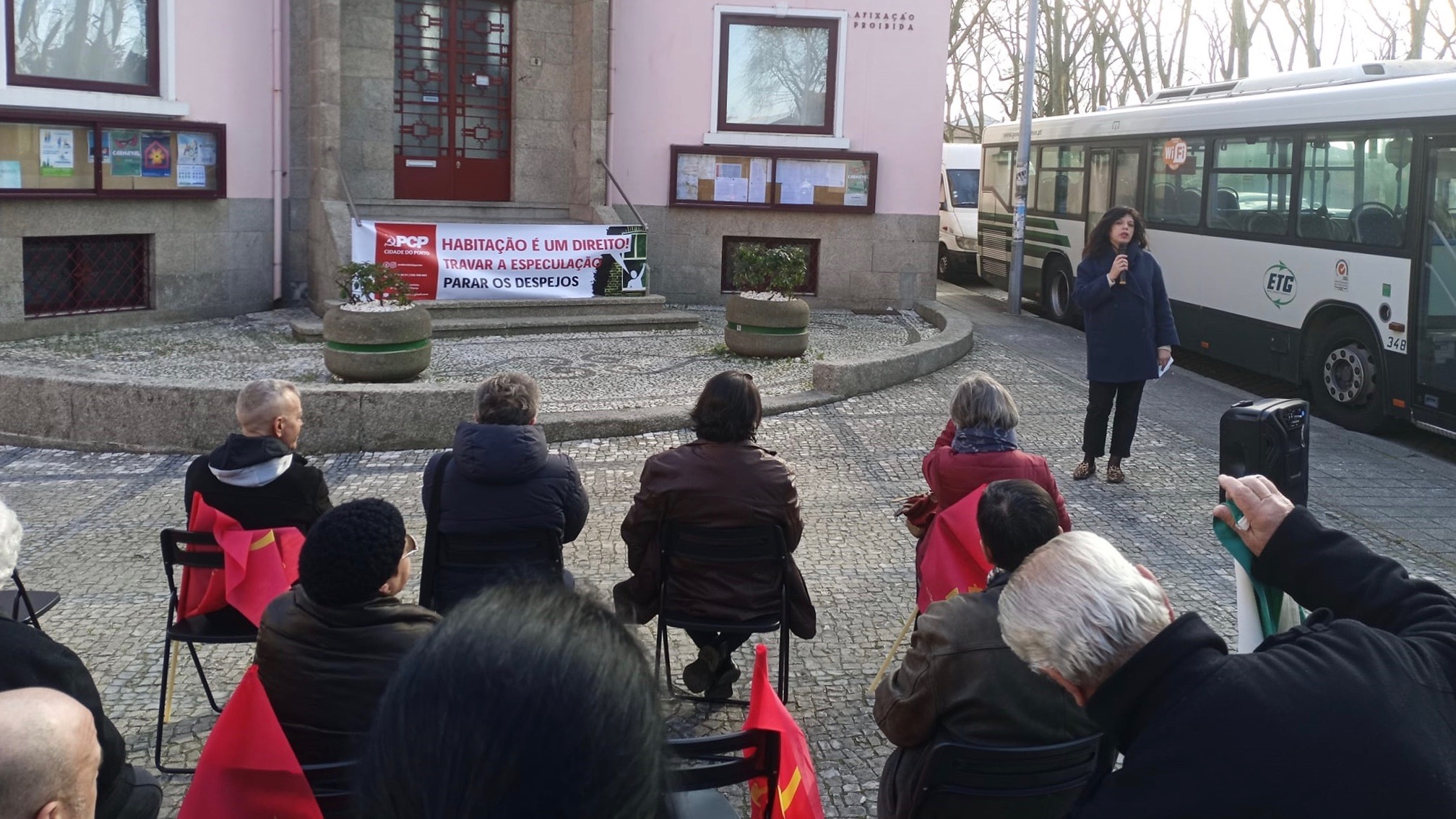Leftist parties and housing rights groups in Portugal have called the recent reforms in the housing sector by the Socialist Party (PS)-led government ‘inadequate’ and an attempt to disguise and perpetuate speculation in the real estate sector. The Portuguese Communist Party (PCP) and the Left Bloc (BE), among others, have criticized the reforms proposed by Prime Minister António Costa on February 16 to ‘mitigate the housing crisis’ in the country. Leftist parties as well as housing rights groups like Habita and Stop Evictions! have called for a major mobilization in the cities of Lisbon and Porto on April 1, demanding affordable and dignified housing. Working class sections in the country have also been protesting the ongoing cost of living crisis by organizing mobilizations titled Vida Justa (‘Fair Life’).
Cities across Portugal are facing an acute housing crisis marked by soaring rents and property prices, even as hundreds of thousands of houses remain unoccupied. According to the registry of the Portuguese National Institute of Statistics, there are around 723,215 empty houses in the country. On February 16, the Portuguese government unveiled its plan, which includes suspending new licenses for Airbnbs in the country and ending golden visas for international home buyers. The government has also hinted at a plan to give tax benefits to landlords who convert tourism properties into rental housing facilities for local residents.
While pro-government media houses are lauding the reforms as a radical initiative to mitigate the housing crisis, leftist parties and housing rights groups have criticized the government for remaining silent on issues like instituting a rent cap, stopping evictions, expropriating unoccupied houses, taxing and controlling rent sharks and speculation in real estate, and increasing investments in social housing.
Left Bloc said, on February 24, “António Costa has broken all his promises for housing” and is now “trying to stop the protest.” The party added that “even if it is applied, this package keeps the business [flourishing] and worsens the social catastrophe.”
Rita Silva from Habita told mediapersons on February 21, “in 2018 also, the government led by the same party and leader promised to end all housing shortages in the country, but the problem kept getting worse; failed policy after failed policy.”

The Portuguese Communist Party (PCP) has also accused the government of continuing to treat housing as a commodity subject to the speculative market.
Not so long ago, a generation of the urban poor in Portuguese cities were able to access dignified housing after the Carnation Revolution, which began in Lisbon on April 25, 1974, and deposed the fascist Estado Novo regime (1933–74) in the country. In her book, ‘A People’s History of the Portuguese Revolution,’ Raquel Varela describes how, following the Carnation Revolution, radical groups in several Portuguese cities began occupying empty houses, leading the way for the formerly homeless to access shelter.
Major cities across Europe, including Berlin, Dublin, Glasgow, Amsterdam, and others, are currently facing similar major housing crises. Housing rights coalitions in these cities have been campaigning for massive investment in social housing and the expropriation of unoccupied homes and the properties of real estate giants to be redistributed to homeless people.





